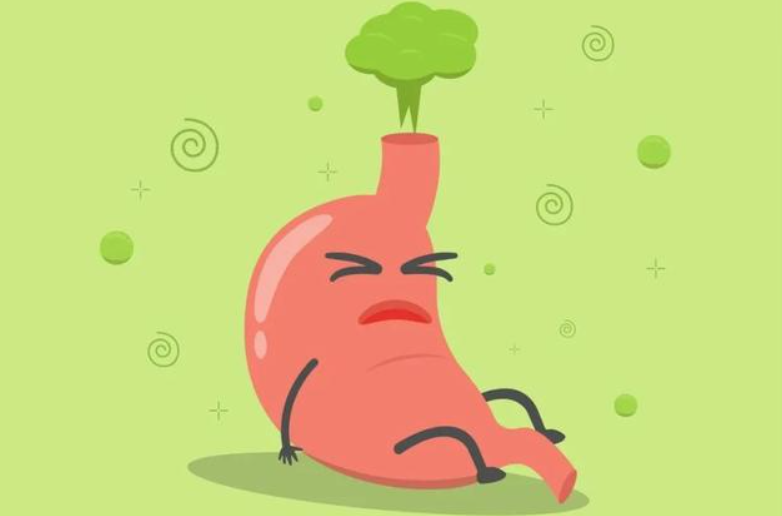
People eat whole grains, the stomach is the biggest credit, the burden is also the heaviest. As you get older, many people inadvertently become the target of stomach problems. If you suffer from chronic stomach diseases, such as atrophic gastritis, reflux gastroesophagitis, gastric ulcer, duodenal bile reflux gastritis, etc., the protective mechanism of the gastric mucosa itself will be reduced, and upper abdominal discomfort such as abdominal pain and distension will occur. At this time, in addition to the need to pay attention to the daily diet, but also need to be vigilant when oral or injection of the following drugs.
Antipyretic and analgesic drugs
Such as aspirin, indomethacin, piroxicam, butazone, diclofenac, ibuprofen and other antipyretic and analgesic drugs, will destroy the protective mechanism of gastric mucosa. After taking it, it is easy to have adverse reactions in the upper digestive tract, such as pain and discomfort in the upper abdomen, indigestion, and even gastrointestinal bleeding. In addition, gastroscopy often gastric mucosal inflammation, erosion and ulcers, serious can also appear ulcer perforation bleeding. Therefore, patients with stomach problems should reduce the use of such drugs as much as possible. For patients with past gastrointestinal ulcers, Helicobacter pylori infection, coronary heart disease and other cardiovascular diseases, or are using warfarin, glucocorticoid drugs, take such drugs should be more cautious.
If it must be taken because of the condition, the relatively safe varieties should be selected as far as possible, such as celecoxib, ibuprofen, etc., and the usage and dosage should be adjusted under the guidance of the doctor, and the use of small doses as far as possible. At the same time, it can be combined with omeprazole, pantoprazole, misoprostol and other drugs to inhibit gastric acid secretion, so as to protect the gastrointestinal mucosa.
Adrenal glucocorticoid drugs
Including dexamethasone, prednisone, prednisolone, methylprednisolone, betamethasone, etc. These drugs can induce gastrointestinal ulcer, or make ulcer recurrence, deterioration.
Studies have shown that glucocorticoids can delay tissue healing, increase the secretion of gastric acid and pepsin, and reduce the secretion of protective gastric mucus, thus reducing the resistance of the gastric mucosa. For people with stomach problems, glucocorticoids may induce or aggravate ulcer bleeding in the stomach and duodenum, and even cause perforation of the digestive tract. Therefore, patients with stomach diseases should be careful when using glucocorticoids.
Ulcers of the gastrointestinal tract caused by corticosteroids, also known as steroid ulcers. Its clinical symptoms are slightly different from those of general peptic ulcers, and its pain has no obvious regularity and often occurs implicitly, until the lesions are very serious, and even bleeding and perforation are discovered, which is because glucocorticoid increases the pain perception threshold and reduces the inflammatory response. Therefore, the gastrointestinal reaction should be closely observed before and during the use of this type of drug, especially for those with original ulcers, and the drug should be carefully used.
In addition, adrenal glucocorticoids should be avoided with salicylate, antipyretic analgesics and antihistamines. It is not appropriate to drink alcohol during the medication, and high protein, high vitamin and canker diet should be given. If necessary, acid making and gastric mucosa protection drugs can be combined.
An antihypertensive drug with a favorable blood-level component
For example, reserpine tablets, compound reserpine tablets, compound reserpine amphenopterine tablets, etc. Reserpine can promote excessive secretion of gastric acid, induce or aggravate gastric ulcer bleeding. Therefore, patients with stomach problems should avoid the use of antihypertensive drugs containing favorable blood levels, and the instructions of these drugs are also clearly marked "prohibited for patients with gastric and duodenal ulcer."
Contains calcium, potassium, iron and other drugs
For example, potassium chloride tablets, iron and calcium supplements containing calcium. Potassium chloride and iron can stimulate gastric mucosa directly. At present, the commonly used calcium supplements mainly contain calcium carbonate and vitamin D and other components, which can also cause gastrointestinal adverse reactions such as belching, constipation, abdominal distension, abdominal pain, flatulence, nausea, vomiting, etc. Long-term excessive use of calcium carbonate can also cause a rebound increase in gastric acid secretion. Therefore, if you suffer from stomach problems, you should pay attention to adjusting the usage and dosage when taking the above drugs, and pay close attention to your gastrointestinal function.
Antibiotic drugs
Such as tetracycline, erythromycin, metronidazole, furan and many other oral antibiotics easily cause nausea, vomiting, abdominal pain, appetite loss, aggravation of peptic ulcer and even bleeding; There are reports that after oral administration of penicillin antibacterial drugs, in addition to the general gastrointestinal discomfort symptoms, acute abdominal pain and gastrointestinal bleeding can occur. Intravenous infusion of erythromycin can also cause gastrointestinal symptoms, and occasionally gastrointestinal bleeding. Polymyxin is highly toxic to gastric mucosal epithelial cells, can cause gastric mucosal ischemia, promote histamine release, gastritis and gastric mucosal injury.
Antitumor drugs
Such as methotrexate, 6-phobopurine, 5-fluorouracil, etc., such drugs can stimulate the gastrointestinal mucosa to produce diffuse inflammation, mucosal swelling, erosion or the formation of gastritis or gastric ulcer, nausea, vomiting, poor appetite and other symptoms.
Heat-clearing, detoxifying and laxative medicine
Including Chinese medicine preparations with bitter cold. Many patients with "fire" or constipation will choose to have a clear fire or defecation effect of Chinese patent medicine treatment, and such drugs are mostly composed of traditional Chinese medicine with bitter cold, such as rhubarb, Coptis, scutellaria, gypsum, artificial bezoar, gardenia and so on.
Long-term or large amounts of such "bitter cold products" will damage the "spleen Yang", causing gastrointestinal discomfort, such as loss of appetite, abdominal distension and pain. Therefore, if you suffer from stomach disease and belong to the syndrome type of spleen and stomach deficiency cold, you should also pay special attention when taking such Chinese medicine preparations.

